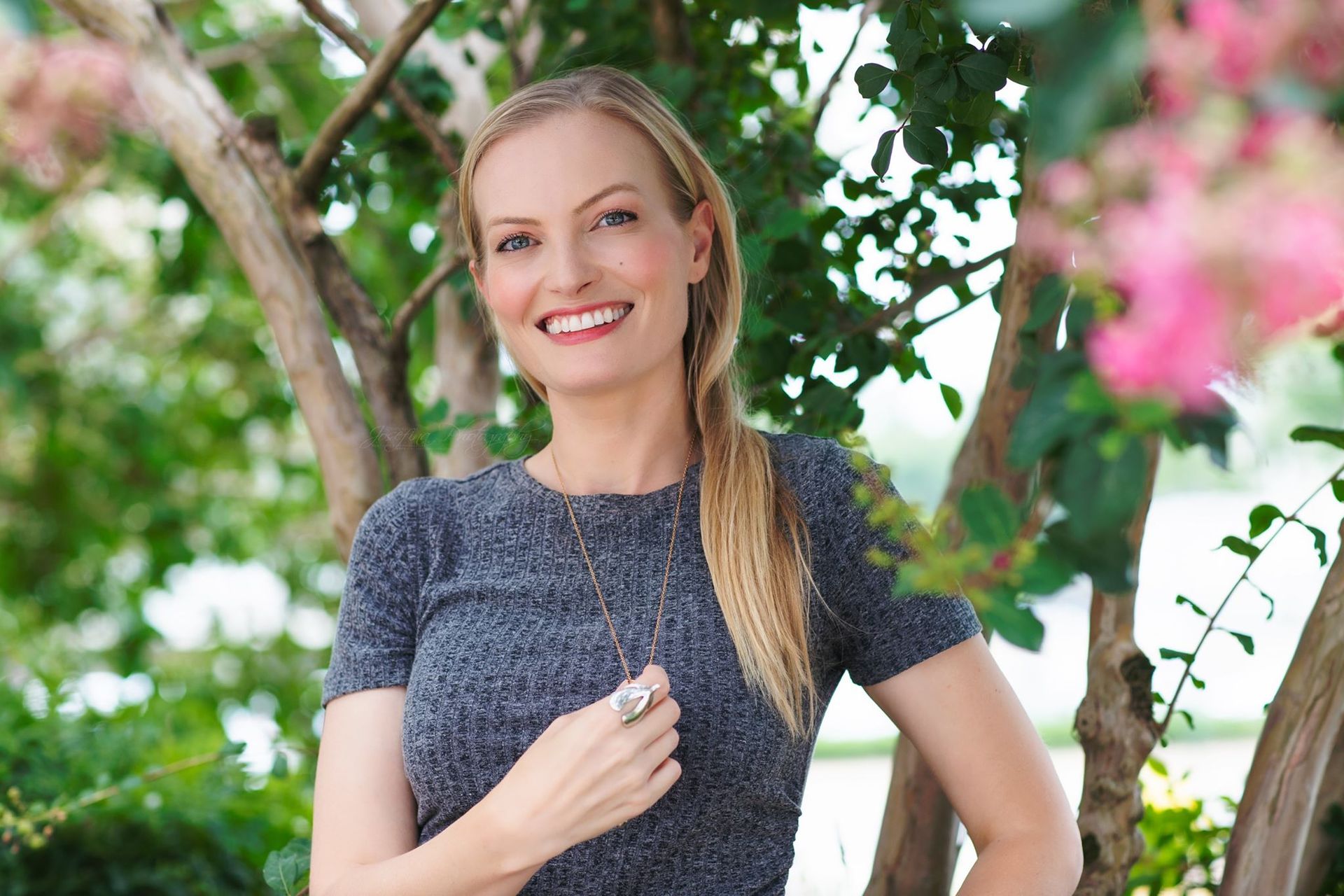If your relationship is taking more away from your life and well-being than it's providing, there's a good chance it's toxic. Here's how to know — and what to do if you realize your romance is unhealthy.
You're dating someone new and everything feels … brighter. You're giddy, practically floating on air. As the emotions from this punch-drunk chemical cocktail settle down, so too does the relationship. But rather than feeling the warmth of deepening intimacy and a comfortable routine, you start to lose yourself. Or at least that's how it seems. Unproductive arguments happen regularly, and one or both of you seem prone to jealousy, passive aggression, or blame.
If those scenarios sound all too familiar, you may be involved in a toxic relationship. "We can think of toxic relationships the same way we think of toxic materials," Shadeen Francis, LMFT, certified sex therapist, tells DailyOM. "Toxic relationships are ultimately harmful to our well-being, often worsening our health and happiness over time."
A toxic romance is one that lacks the attributes of a healthy relationship. "At the heart of any great relationship is partnership," says Wendy Newman, a relationship expert and author of 121 First Dates, whom DailyOM spoke with for this story.
And that healthy partnership involves mutual love and high integrity, she adds, having each other's backs and empowering each other to be the best version of yourselves. Both parties have good intent and stay responsible for their own feelings. "If any of these elements are missing, you've got the makings of a toxic relationship," Newman says. "If you're dealing with an opponent instead of a partner, that's toxic."
Meanwhile, if you're continually offering your best self and stay willing to work through challenges, yet your partner isn't receptive — or worse, they're downright harmful — that's toxicity worth paying attention to.
If you're dealing with an opponent instead of a partner, that's toxic.
Here are common signs the experts suggest looking out for if you're concerned your relationship is not healthy for you.
4 Signs Your Relationship Is Toxic
1. You Don't Operate as a Team
Conflicts and disagreements are a part of all relationships, says Francis, but if those conflicts undermine your trust and safety, that's a concerning sign of toxicity.
A study published in the journal Family Process in 2019 showed that happy couples tend to take a solution-oriented approach to conflict. When they argue about things like how to spend free time or divvying up household chores, they aim to find mutually helpful outcomes versus ending up in an exhausting spiral with no fixes.
"You and your partner are different people and are going to have feelings, thoughts, needs, and desires that are at odds sometimes," says Francis, adding that feeling disappointed, angry, or sad is okay. "But notice whether or not you still generally feel like a team. Even as there are problems, do you believe that you both are working toward resolving them? Can you still be kind to one another? Or is there blame, criticism, gaslighting, avoidance, or stonewalling?" If it's the latter, and if kindness and resolution remain out of reach, that's a toxic pattern.
2. You're Codependent
Codependency is another toxic trait that can put your relationship and well-being off course. In this dysfunctional dynamic, one person takes on the role of the "giver" and the other is the "taker." The giver sacrifices their own needs to tend to the other — potentially making excuses for their unruly behaviors — while the taker relies too heavily on those care attempts.
"Codependent relationships, even if they are warm and loving, are also often toxic relationship environments," says Francis. "They are often organized not by love, but by insecurity, trauma bonding, and fear."
Though it's important to note that many people have overcome challenging childhood experiences without repeating those patterns as adults, if you or your partner grew up in an abusive household or around alcohol dependence, you may be more prone to this scenario.
3. Your Life Is Falling Apart
A common thread among many toxic relationships is the isolating places they lead. You may become so involved in the toxic parts that you have little room in your life for friendships or hobbies. Your work life suffers as you struggle to concentrate on anything besides your relationship, while your moods and ability to sleep well dwindle.
While some of these issues might crop up in a pronounced way, gradual, subtle unfolding is common. Because "our relationship dynamics are a series of interactive habits, patterns of response, emotional exchanges, and routines that we form together over time," says Frances, "it is not unusual for subtle changes or seemingly unimportant frictions to become entrenched problems in our relationships down the road."
And because these frictions and their effects develop slowly, it's easy not to realize the path you're on until the pain or frustration accumulates. If you feel like something isn't right, Frances adds, it's important to "trust your embodied wisdom, even if you can't quite put your finger on where or when things shifted." And if your partner uses manipulation to avoid accountability, she says, they may capitalize on doubt and try to distract or gaslight you into ignoring warning signs of toxicity.
While positive, healthy relationships allow you to strengthen other life areas and bolster self-esteem, a toxic relationship does the opposite. "A toxic relationship isn't just one with challenges or hardships," explains Francis. "They take a long-term toll on your health, whether that is emotional health, mental health, spiritual health, financial health, or physical health."
4. You Notice Signs of Narcissism
While not all toxic relationships include narcissism, a narcissist's extreme self-involvement can easily invite toxicity. "Narcissism involves a number of traits that are likely to create a toxic relationship: self-absorbedness, lack of remorse, low emotion regulation skills, a dependence on others' admiration in order to feel self-worth, and a resistance to taking accountability for their impact on others," Francis says.
You might also fall prey to gaslighting, manipulation, and severe emotional abuse when a partner's narcissism is at play, which may show up as your being constantly controlled or ridiculed.
When on the receiving end of narcissistic behavior, your own needs fall to the wayside because of your partner's self-focus. (At first, your partner may have showered you with over-the-top gestures and gifts, also known as "love bombing," purely to "win" or "keep" you.).
Even though narcissism often stems from emotional neglect early in life, know that it's not your responsibility to "fix" a partner who's hurting you. You can have compassion and move on. And of course, narcissism doesn't affect everyone who had a difficult childhood. Only about 5 percent of people have narcissistic personality disorder, the most severe form. If you recognize that you are prone to narcissist tendencies yourself, with time and effort, you can work through those wounds and find new strategies for soothing and relating to others.
Interested in learning more? Check out Protect Yourself from Control Dramas
Can You Fix a Toxic Relationship?
An unhealthy, toxic relationship can be turned around, says Newman, if both people are willing to change their behaviors for good. "Not try to change, not hope to change someday. I mean literally change instantly, as in I see it, and I'll stop it right this second." While this shift is rare, she says — and requires committed efforts moving forward — it's awesome.
Chanel Dokun, a relationship expert trained in marriage and family therapy, author of Life Starts Now: How to Create the Life You've Been Waiting For, and the co-founder of Healthy Minds NYC, agrees that a toxic relationship can be healed, "but only if each individual does the hard work to address their own unhealthy relational patterns," she tells DailyOM. "The couple might need to take a substantial break to allow for healing and a reset to their dynamic."
How to Get Out of a Toxic Relationship
What you don't have to do is stick around suffering, hoping the other person will change. Some relationships can't be saved, and you may decide it's time to go your separate ways, even if you still have feelings for your partner or they have certain traits that you admire.
When meaningful change isn't feasible or you want out regardless — for whatever reason — both Francis and Newman suggest seeking help. That's because breakups, while never easy, can be especially complicated and painful when you're dealing with a toxic dynamic. If your self-esteem has lowered because of the relationship, leaving you in a more vulnerable state, even a relatively mild breakup might feel impossible. Regardless, you can get through it with proper care.
To get out of a toxic relationship, Newman says the support of friends, family, and possibly a trained professional such as a therapist is key. "Set yourself up to have someone in your corner who can have your back and reassure you that you're making the right call. This is not the time to turn inward; look out to your community for love and help," the expert says.
Ask your therapist or another trusted ally to help you role-play what you want to say to end the relationship and brainstorm next steps and logistics — say, if you and your partner are currently living together or will need to be in contact in the future, due to children you share together or for another reason. If you are able to make a more complete break and cut off all communication, that may be helpful, and even necessary, particularly if you feel your partner will try to gaslight, guilt, or otherwise manipulate you to stay with them, or you've developed a trauma bond, in which you feel you need the harmful partner.
How to Heal from a Toxic Relationship
There's no quick fix or universal timeline when you're healing from a toxic relationship that you've left behind, so keep being gentle with yourself. "Change is hard and takes time," notes Frances. "You'll need some grace to get to the other side."
Continue to lean on your support systems and give yourself time to work through the aftermath with love and kindness toward yourself.
Meanwhile, delve into activities you're curious or passionate about, with the knowledge that you are a "whole person with or without a partner," says Dokun. "It's possible to build a thriving life full of meaning and purpose without staying in a toxic dynamic, so prioritize the pursuit of your own life purpose over the relationship before you miss out on the life you deserve to live."
To explore what that might look like for you, consider journaling, practicing guided meditation, or bringing these topics up with a friend or your therapist.
The rewards of the healing work you do can pay off more than you can imagine. Trust that process, knowing that you will absolutely be better off in the long run.
If you think you may be in an abusive relationship, contact the National Domestic Violence Hotline: 800-799-7233.

